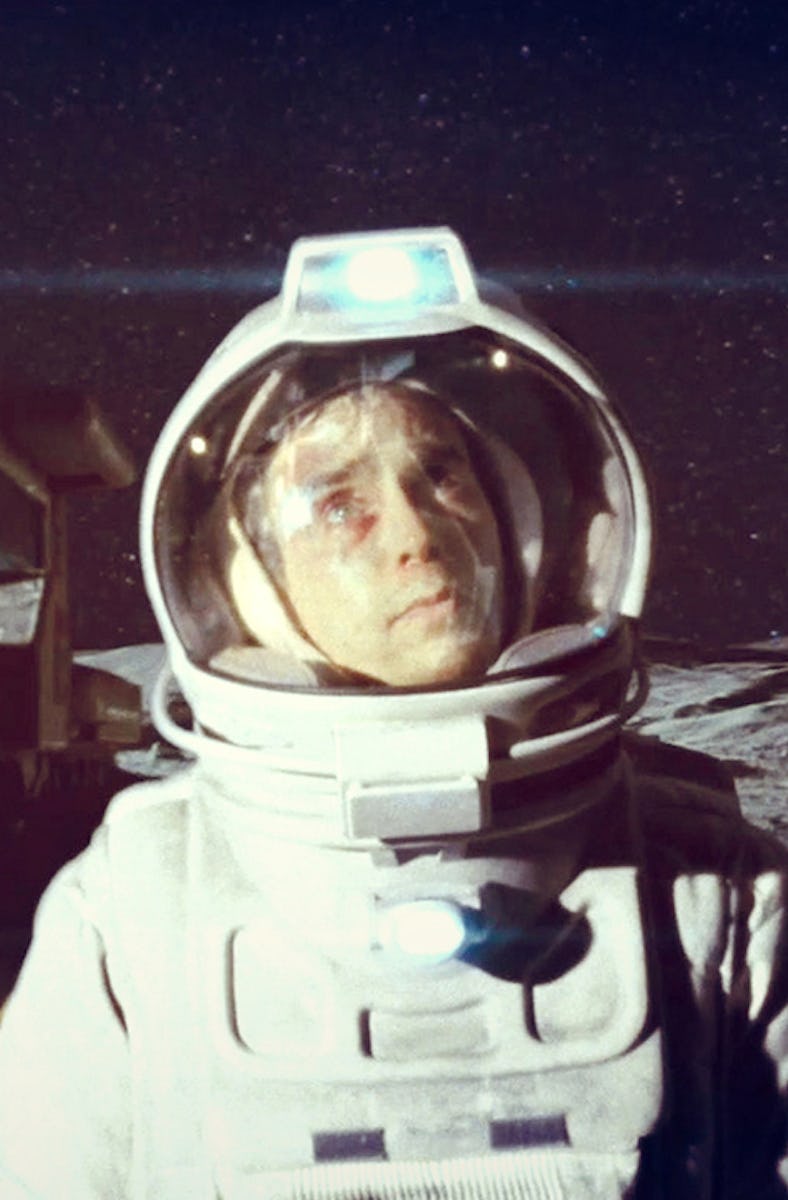Sam Rockwell’s Best Sci-Fi Movie Feels Even Timelier Now
"We're not programmed. We're people. Do you understand?"

It's a scary time to be, well, a working person in the world.
Every week, it seems like everyday people's fears about tech companies' ongoing research into artificial intelligence are being ignored in favor of advancements that, frankly, don't seem like they're being done with the consideration they warrant. Countless CEOS and corporate leaders — who definitely don't have any stake in ensuring the success of their companies' AI endeavors — have come out in recent months to promise that they're not actually interested in erasing the human component of their businesses. Their comments, nonetheless, justifiably haven't done much to quell workers' growing concerns about the threats AI poses to their jobs and daily lives.
It's with all this in mind that we celebrate the 15th anniversary of Moon. The film, which hit theaters 15 years ago this week, is a twisty sci-fi drama about a man who discovers that he's nothing more than a cog in the wheel of one powerful corporation's secret cost-cutting scheme. Featuring a stunning, dual lead performance from Sam Rockwell, the film tells a story of what can happen when scientific advancement is corrupted by corporate greed. Time has, consequently, been incredibly kind to Moon, which unfortunately feels even timelier now than it did in 2009.
Moon is set in a future where Earth's energy problems have been solved by Sarang Station, a facility built on the Moon by Lunar Industries that mines an alternative fuel resource. The film, written and directed by Duncan Jones (Source Code, Warcraft), follows Sam Bell (Rockwell), Sarang Station’s sole worker, who oversees its mining machines and ensures that its fuel shipments launch on time. When Moon begins, he's only two weeks away from reaching the end of his multi-year contract and reuniting with his pregnant wife on Earth. His plans are upended, however, when a rover crash knocks him unconscious.
That is, at least, until a younger clone of him is awakened and decides to disobey his bosses' orders to remain inside Sarang. After rescuing his older doppelganger, the two Sams discover that they are clones of the original Sam Bell, who finished his contract over a decade ago. Rather than spending the money to hire and train new workers, Lunar Industries decided to unethically use unpaid clones to maintain its mining facility — preventing them from contacting Earth under the guise of technical problems and designing them to physically deteriorate near the end of their three-year lifespans. When one of the dying clones eventually climbs into the vessel that they believe will take them home, they are, instead, incinerated.
These twists, which are revealed with the exact right amount of patience and solemnity by Jones, transform Moon from a sci-fi drama about a man fighting to get home to a chilling tale about a pair of workers trying to get out from under the heel of their corporate oppressors. Thanks to Rockwell's moving, impassioned central performances and a handful of quiet, reflective third-act scenes, Moon even finds the time to explore the difficult process one must go through to make sure that their personal identity is not defined solely by their work. That message, much like the rest of Moon, hits even harder now than when the film was originally released.
In Moon, director Duncan Jones explores — at a movingly human level — how corporate greed destroys hard-working people’s lives.
Moon is the rare mystery-box drama that manages to stick its landing. It gets you so emotionally invested in its character's story that you want to find out what's going on, and rather than letting you down, the film's second-half twists only allow it to accumulate more emotional and thematic weight. While cloning may still seem like an incredibly distant possibility right now, too, the current conversations surrounding AI have imbued Moon's story of a corporation embracing whatever technological shortcuts it can — no matter how callous or despicable — to avoid paying one worker at a time with a renewed level of cultural importance.
Few sci-fi movies of the past 20 years have scenes that have aged as well as when Rockwell's younger clone screams at his older counterpart, who hasn't yet accepted the full truth of his employer's actions, halfway through Moon. "Wake up! You really think they give a sh*t about us? They're laughing all the way to the bank," he yells. It was a chill-inducing moment 15 years ago and it still is, but for even more reasons now.